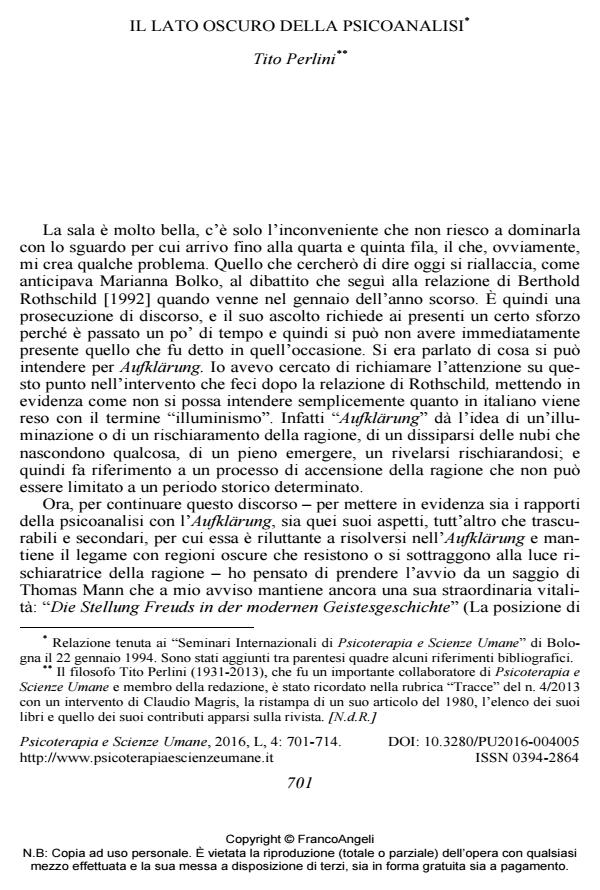The dark side of psychoanalysis
Journal title PSICOTERAPIA E SCIENZE UMANE
Author/s Tito Perlini
Publishing Year 2016 Issue 2016/4
Language Italian Pages 14 P. 701-714 File size 64 KB
DOI 10.3280/PU2016-004005
DOI is like a bar code for intellectual property: to have more infomation
click here
Below, you can see the article first page
If you want to buy this article in PDF format, you can do it, following the instructions to buy download credits

FrancoAngeli is member of Publishers International Linking Association, Inc (PILA), a not-for-profit association which run the CrossRef service enabling links to and from online scholarly content.
The relationship between the aspects of Freud’s thought related to Enlightenment and the aspects related to the romantic reaction to it is discussed. Nietzsche’s interpretation of Romanticism as "a reaction which is a progress" is referred to in order to present Freud’s thought as an irrationalism opposed to rationalism in order to give life to a rationalism which could be more open than that of the Enlightenment. This attempt, however, is considered to be unsuccessful, especially in light of the psychoanalytic positions already developed by Freud’s closest followers: e.g., the predominance given by Abraham, Rank and Ferenczi to the maternal role instead of the paternal role; Bion’s approach that opposed mysticism and pure mathematical speculation to a knowledge based on the law of cause and effect; the fascination for poetic language which has the consequence of closing in itself the psychoanalytic experience.
Keywords: Enlightenment, Romanticism, Sigmund Freud, reaction as progress, maternal/paternal
Tito Perlini, Il lato oscuro della psicoanalisi in "PSICOTERAPIA E SCIENZE UMANE" 4/2016, pp 701-714, DOI: 10.3280/PU2016-004005